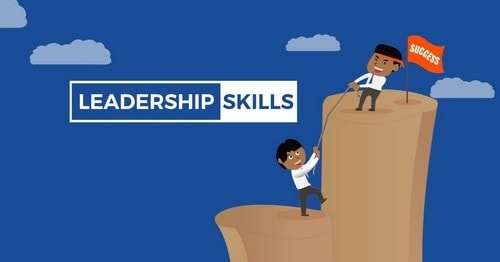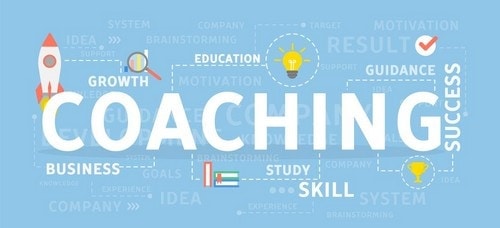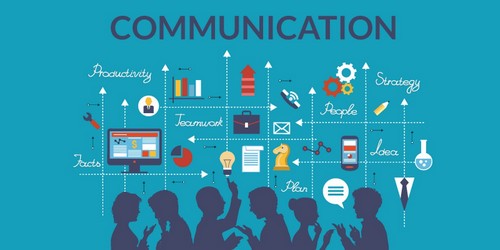
Mastering 30 Essential Leadership Skills for Success

Leadership skills are the qualities and attributes that enable an individual to lead a team or situation successfully Possessing these skills is essential in achieving goals, inspiring others, and fostering growth and development
Effective leadership involves demonstrating abilities and capabilities while guiding a team, managing situations, and navigating life. These skills are crucial for higher-level executives to make informed decisions and enable effective delegation, motivation, and communication. A skilled leader can inspire a group towards achieving an organization's vision, mission, and objectives.
What are Leadership Skills?
Leadership skills are the essential abilities that enable an individual to lead effectively and positively. These skills are crucial for professionals to progress in their careers and encompass a wide range of traits expected in a competent leader. Possessing these soft skills increases the chances of being hired or promoted, regardless of whether one leads a company, a team, a department, or is a member of a team. Aspiring towards and developing these skills is essential for everyone.
What makes a Great Leader?
A great leader is built on a strong foundation of effective leadership skills. The key competencies of such leaders include excellent communication, delegation of responsibilities, team motivation, adaptability, openness to feedback, team organization, acceptance of power, and emotional intelligence to achieve goals in constantly changing circumstances.
spiring and motivating their team members to work towards achieving common goals and objectives. They possess excellent communication skills and are able to clearly articulate their vision and expectations to their team. Additionally, they are able to recognize the strengths and weaknesses of their team members and assign tasks accordingly, making sure that everyone is able to contribute to the best of their abilities. A great leader also fosters a culture of collaboration and encourages team members to work together towards achieving success.
Increasing employee engagement
Supporting a positive environment
Inspiring other members to possess leadership skills
Removing obstacles for their team
Importance of having the right leadership skills
Having leadership skills is crucial not just for those in higher positions, but for all professionals. These skills are essential to being a productive and valuable team member.
Mastering the skills required to be an effective leader is a challenging endeavor, but the rewards are worth the effort. With these skills, you can create a productive and supportive work environment, earn the respect and loyalty of your team members, and achieve remarkable success.
Having strong skills in leadership is crucial for both personal career growth and the success of the organization. It serves as a solid foundation for building a successful career trajectory and helps organizations create exceptional leaders. Leading organizations recognize the significance of developing leadership skills deliberately and not relying on chance.
To succeed in your career, it's essential to constantly enhance and refine your skills, adapting them to new situations and challenges. Even as you become more proficient in a particular area, there will always be opportunities for growth and development as you take on bigger responsibilities.
30 Effective Leadership Skills you need to be an Effective Leader
1. Decisiveness
Efficient and effective decision-making is a crucial leadership skill that can help accelerate project completion and ensure optimal outcomes. A competent leader should possess the ability to make informed decisions promptly and take necessary actions while continually evaluating their progress. Being decisive and taking initiative are key attributes of successful leaders.
2. Integrity
Integrity encompasses more than just honesty and truthfulness; it also denotes a person's adherence to strong moral principles. In a professional setting, this translates to making ethical decisions and safeguarding a company's reputation. Leaders with integrity are impartial, competent, and self-assured, finding a way to be tactful while still taking decisive action to create a fair workplace environment.
3. Relationship building and management
Effective leadership involves the ability to form and maintain a united, resilient, and cooperative team that works towards a common objective. This requires leaders to possess strong interpersonal skills that enable them to actively listen and assist team members with their concerns and challenges.
4. Problem-solving
Effective leadership demands analytical skills and proficiency in problem-solving. To deal with practical issues, leaders must keep their cool and devise a step-by-step approach to tackle the problem at hand. This calls for extensive research and the ability to overcome any hurdles that may hinder progress towards achieving their goals.
5. Accountability and Dependability
Dependability is a crucial leadership skill that employers seek in candidates. A dependable leader is trustworthy and fulfills their commitments. Such leaders have a positive rapport with their team members and superiors. They are accountable for their actions, meet deadlines, and can be relied upon by their team.
6. Ability to teach
Good leaders possess the valuable skill of mentoring and teaching their team members. They are adept at coaching their colleagues and fostering their growth while simultaneously achieving the organization's objectives. They offer assistance and utilize positive reinforcement to guide their team members and recognize them for their accomplishments. Their focus is on the success of the team as a whole, not just their individual achievements or the success of the organization.
7. Effective Communication
Effective leaders not only convey their expectations to their employees, but also take the time to explain them thoroughly. They are skilled in all forms of communication, including one-on-one discussions, departmental meetings, and full-staff conversations. One key aspect of effective communication is the ability to listen attentively. A successful leader is also able to express themselves clearly and concisely when communicating with their team.
8. Delegating
Even the most capable individuals cannot handle all tasks alone and may require assistance. This is where delegation comes in, and a skilled leader knows that it is crucial for maximizing performance, prioritizing tasks, and empowering colleagues. Successful delegation requires a leader to accurately assess the skills of their team members.
9. Creativity
Creative thinking is essential in certain circumstances, which is why employers seek out individuals with this skill for leadership roles. These individuals possess a natural curiosity and are innovative in their approach. They have the ability to make abstract connections and are open to experimenting with new ideas and methods.
10. Strategic Thinking and Planning
Leaders possess a unique skill set that sets them apart from managers - the ability to think strategically and plan for future events. They have a keen eye for the bigger picture and prioritize opportunities over minor issues. Their vision is aligned with the organization's values, and they utilize a wide range of resources to achieve its objectives.
11. Persuasion and Influencing Skills
Leaders play a crucial role in inspiring and engaging their colleagues and subordinates. They possess the ability to encourage team members to embrace change and successfully implement it. Additionally, they excel at convincing others to act in alignment with the team's goals and objectives.
12. Conflict Management
Conflicts are inevitable in any organization, but it is the leader's responsibility to address them promptly and effectively. A competent leader should possess the ability to spot a conflict before it escalates, allowing ample time to devise a solution. It is crucial for leaders to remain composed and analytical in such situations to make the best decisions for the organization and its members.
13. Negotiating Skills
Negotiation is a crucial process that involves two parties with differing opinions finding common ground for a mutually beneficial solution. Effective negotiation requires strong leadership skills, including the ability to use persuasive strategies to achieve desired outcomes. Moreover, successful negotiation can help foster positive relationships between individuals and groups.
14. Time- Management
Leaders who possess effective time management skills are able to prioritize tasks, delegate responsibilities, set achievable goals, and focus on the most important aspects of their work. By setting SMART goals for themselves and their team, they are able to effectively achieve success for their organization.
15. Agility and Adaptability
Adaptability has been identified as one of the most important qualities for effective leadership, particularly in a dynamic business environment. Agile Leadership is a leadership style that enables leaders to navigate through diverse and uncertain situations, including those that involve new and unfamiliar challenges. Possessing this skill is highly desirable for individuals in leadership positions.
16. Patience
Good leaders exhibit patience, especially in high-pressure scenarios. They approach the situation with a composed and rational mindset, taking the necessary time to evaluate before making any decisions or judgments. Demonstrating patience is a way for leaders to show respect for their team members, and it can also enhance their productivity while encouraging patience in others.
17. Empathy
An empathetic leader possesses the ability to comprehend the complexity of a situation and strategically identify the best course of action. This proficiency enables them to not only support their employees but also elevate their performance. They possess the skill to detect signs of burnout in their team, which can negatively impact their motivation and output.
18. Active Listening
Active listening is a crucial competency for leaders as it enables them to comprehend others' perspectives and make informed judgments. This not only enhances their communication abilities but also fosters a positive leader-member relationship by making others feel valued and acknowledged. Active listening empowers a leader to gain varied outlooks on any issue, making their decisions more informed and well-rounded.
19. Optimistic
Optimistic leaders have the ability to visualize the future with clarity and develop a practical plan for the organization. Their positive attitude and approach can motivate and guide the team during challenging circumstances, easing the pressure of setbacks. Collaborative in nature, these leaders foster team spirit and enhance the work ethic, thereby promoting a culture of cooperation and mutual respect.
20. Feedback
Leaders who actively seek feedback gain valuable insight into their behavior, performance, and leadership style. This self-awareness enables them to assess their behavior and performance more objectively. To gain a well-rounded understanding of their performance, a leader should solicit feedback from a variety of sources, including their network, subordinates, and superiors. By incorporating feedback, leaders can refine their approach and continuously improve their leadership skills.
21. Risk-Taking
Great leaders possess a forward-thinking mentality and are not afraid to take calculated risks. They carefully consider the impact on both individuals and the organization before making a decision. These leaders determine the appropriate level of risk that will result in the greatest reward. Additionally, they display empathy towards others and ensure that their decisions do not adversely affect anyone. Although risk-taking is sometimes inevitable, effective leaders strive to minimize potential harm to others.
22. Build Trust
Building trust is crucial for a leader to successfully guide their team. It fosters an atmosphere of mutual trust, respect, and loyalty, and demonstrates the leader's credibility, dependability, and reliability. This, in turn, leads to the creation of a fair and equitable organizational environment.
23. Recruiting Skills
A skilled leader has the ability to identify exceptional individuals who are a perfect fit for the organization. They set a standard of efficiency and productivity, and only select candidates who align with the company culture or can be developed to do so. As a result, they excel at recruiting talented individuals who bring significant value to the organization.
24. Strong Leadership Vision
Remarkable leaders are not only passionate about their work but also have a clear vision for the organization. They are able to effectively communicate this vision with others, providing a sense of direction and purpose. By setting a clear vision, leaders inspire their team to work towards shared goals and objectives, resulting in increased productivity and success for the organization.
25. Employee Motivation
Exceptional leaders have the power to ignite a flame of passion within others simply by being themselves. They don't necessarily have to take deliberate measures to motivate others, as their innate drive and determination serve as a source of inspiration for those around them. Their hard-earned success serves as a beacon of hope and encouragement for others to strive towards achieving their own goals with the same level of diligence and perseverance.
26. Committed
Effective leaders are individuals who exhibit unwavering dedication towards their work and organization. Their passion for what they do drives them to pursue their personal and professional objectives with innovative approaches. Their work ethic is exemplary as they do not compromise their values or resort to shortcuts in their pursuit of success.
27. Self-Aware
Effective leaders possess self-awareness and emotional intelligence, allowing them to make difficult decisions with a calm and rational mindset. They understand their strengths and weaknesses, utilizing their strengths to their advantage and actively working to improve upon their weaknesses.
28. Consistency
Consistency matters a lot in leadership and can determine their success as well. It makes them reliable and predictable. It makes them more focused and goal-oriented.
29. Team building
Building a team is a crucial leadership skill that is required for various leadership roles. A successful leader should possess the necessary team-building skills such as collaboration, interpersonal communication, effective management, social skills, and active listening to establish and maintain a cohesive team that works towards a shared objective.
30. Decision Making
Effective decision making is a fundamental aspect of leadership, whether you are an experienced or novice leader. It involves gathering and analyzing information, evaluating various solutions, and ultimately making a decision that yields positive results. To make thoughtful and informed decisions, leaders must define available options and carefully organize relevant information.
Examples of Leadership Skills at the Workplaces
in adapting to change, effective communication, problem-solving, decision-making, teamwork, time management, motivation, delegation, and creativity. These skills not only help employees to excel in their current roles but also prepare them for future growth opportunities within the company.
Time management
Management skills
Persuasion skills
Active listening
Skills to inspire and convince others
Empathy
Skills to share clear messages and make complex ideas easy to understand for everyone
Project planning
Strategic thinking skills
Skills to assess employees’ strengths and weaknesses
Creativity
The ability to turn information into action
Business storytelling
Skills to build trust
Good communication skills
Positivity and reliability
Leadership skills to align the employees with the company values and goals
Recruiting skills
A strong leadership vision and charisma
Skills to help employees find meaning at work
Here is a video byon Leadership Skills.
5 Tips to Develop your Leadership Skills
Some of the key tips that will help you optimize the leadership skills that can assist you in leading your team and fulfilling related responsibilities are-
Find books similar to the 1937 release of Dale Carnegie's "How to Win Friends and Influence People" and other resources that can help you improve your leadership abilities. Additionally, consider attending various leadership training courses or workshops to further develop your skills in this area.
Expand your horizons and look for opportunities that align with your long-term objectives. Take the initiative to request additional responsibilities and seek out leadership activities beyond your job description. This proactive approach can help you achieve your goals and advance your career.
Make plans and improve specific leadership skills such as communication or creative thinking, etc.
How to Identify your Leadership Style?
Understanding the various types of leadership styles is essential for any leader or manager looking to improve their leadership skills. By familiarizing themselves with styles such as democratic, autocratic, coach, visionary, servant, laissez-faire or hands-off, transformational, transactional, bureaucratic, and pacesetter, they can identify their own style and work towards enhancing it using the tips mentioned above.
Then analyze which leader style best-suits with your ways of leading team members
Check if you comprise all the expectations and skills of your leadership style or not
Evaluate whether your leadership approach is singular or a blend of various styles. Additionally, assess its efficiency in producing the desired outcome and whether your team approves of it.
Going through these steps will help you identify your style of leading the team, plus it will also help you in improving your leadership styles.
Ways to Showcase your Leadership Skills
Showcasing your leadership prowess in your resume and cover letter is crucial. One effective way is to provide concrete examples that demonstrate your ability to lead a team to success. Consider highlighting how you delegated, mentored, and managed your team to achieve a specific goal. Alternatively, you may simply include "leadership" alongside other skills like communication, conflict resolution, and mentoring in your skills section. Another useful strategy is to mention instances where you displayed leadership traits in your "Achievements" section.
Incorporating specific instances of utilizing leadership skills can add credibility to your cover letter or job interview. For instance, an HR manager could provide a concrete example of recruiting employees to achieve a particular objective, backed up by relevant metrics.
Conclusion
We all know that leadership skills are the most inevitable factor of career growth for workers, executives, managers, or leaders in different industries.
People also value those leaders who can have good leadership skills and like to work for them enthusiastically. Therefore, incorporating the aforementioned skills is mandatory for any leader.
NEXT
Importance of leadership
START
Leadership Hub




















